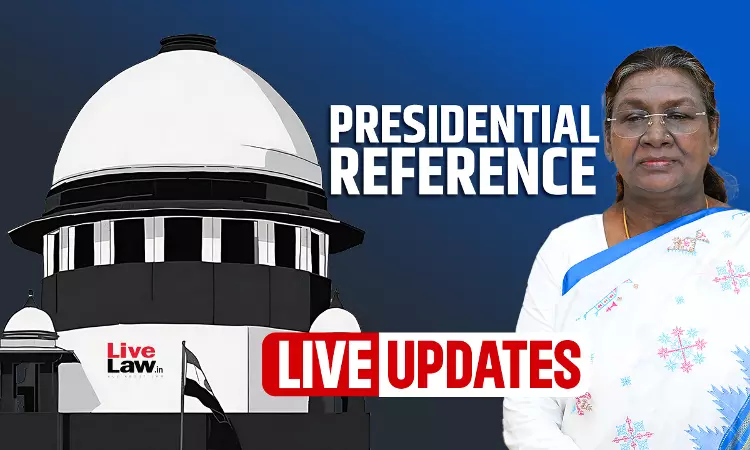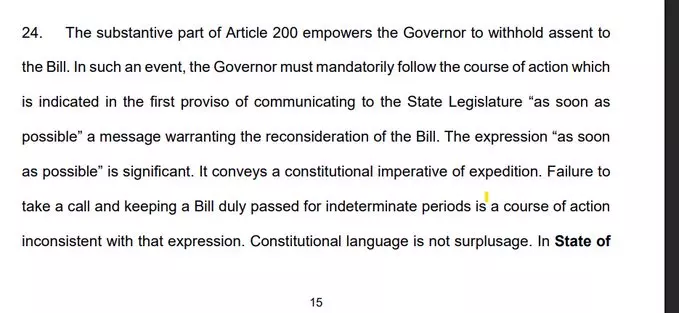A 5-judge Constitution Bench of the SupremeCourt will hear today the Presidential Reference by President Droupadi Murmu on 14 questions on the power to assent on Bills, including whether Court can fix timelines for the President/Governor to decide on Bills.
The Presidential Reference, made under Article 143, came a month after Supreme Court's judgment in Tamil Nadu Governor's matter, wherein the Court held that the Governor did not act bona fide in reserving Bills to President. It held those bills as deemed assented. In the judgment passed by Justices JB Pardiwala and R Mahadevan, the Court held that the President must act on the Bills reserved for her under Article 201 within 3 months:
The reference will be heard by a bench comprising Chief Justice of India BR Gavai, Justice Surya Kant, Justice Vikram Nath, Justice PS Narasimha and Justice AS Chandurkar.
Yesterday, Senior Advocates KK Venugopal (for State of Kerala) and Abhishek Manu Singhvi (for State of Tamil Nadu) raised preliminary objections. They argued:
1. Most questions raised in reference are squarely covered by Tamil Nadu judgment
2. Reference can't be made on settled questions.
3. Attempt has been made to entertain intra-court appeal exercising appellant jurisdiction which is not permissible under advisory jurisdiction.
Attorney General R Venkataramani concluded his arguments
1. Tamil Nadu judgment in breach of various judgments
2. A reference to larger bench was sought but ignored
3. Not conclusive authority on Articles 200 and 201 exists; reference is to decided which one is the conclusive authority
Solicitor General Tushar Mehta began his arguments post lunch yesterday. He argued:
1. Highest executive authority can't be tied down to say you are bound by timelines
2. Initially timelines to bound the President was there but it was consciously removed




